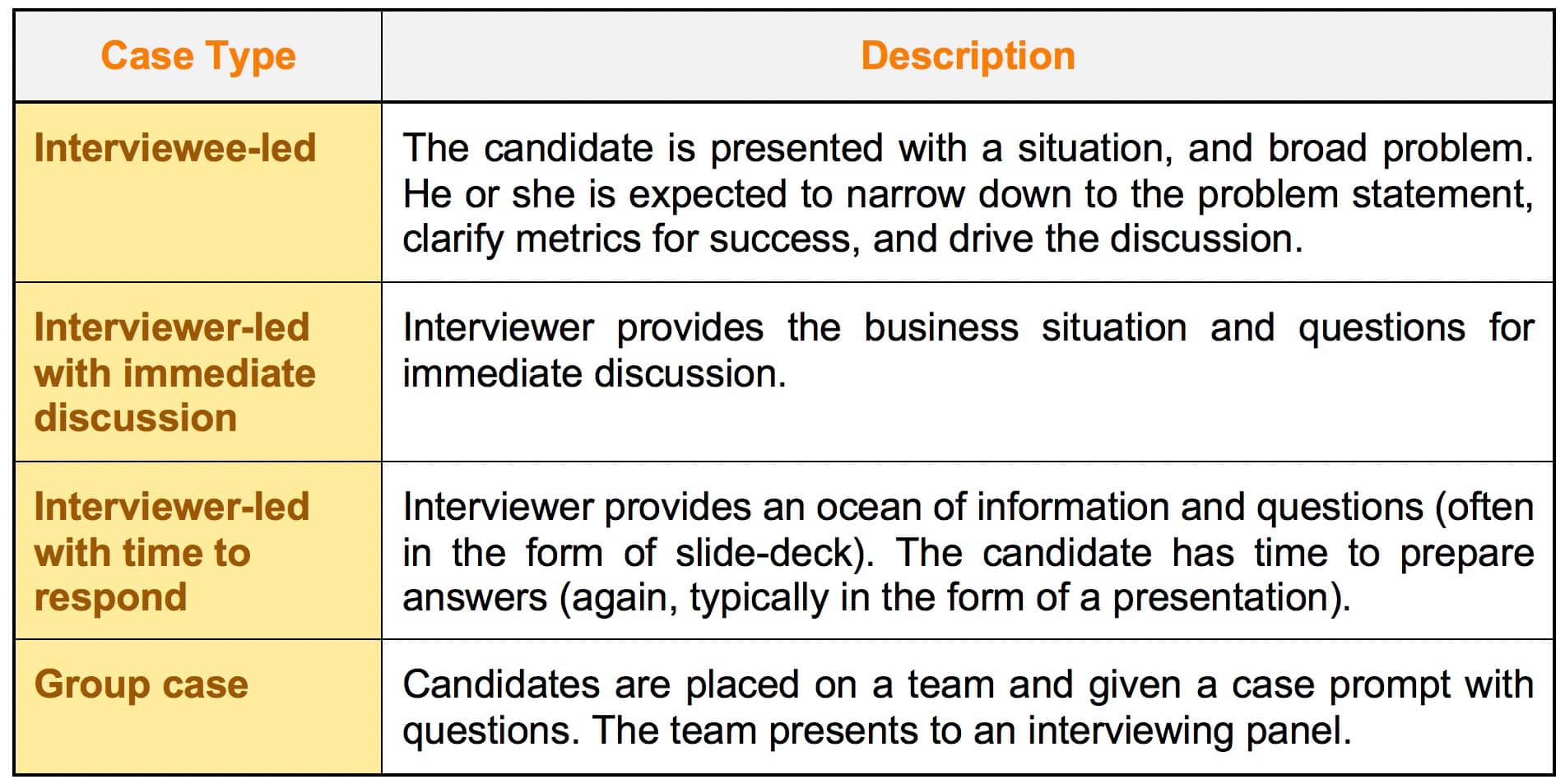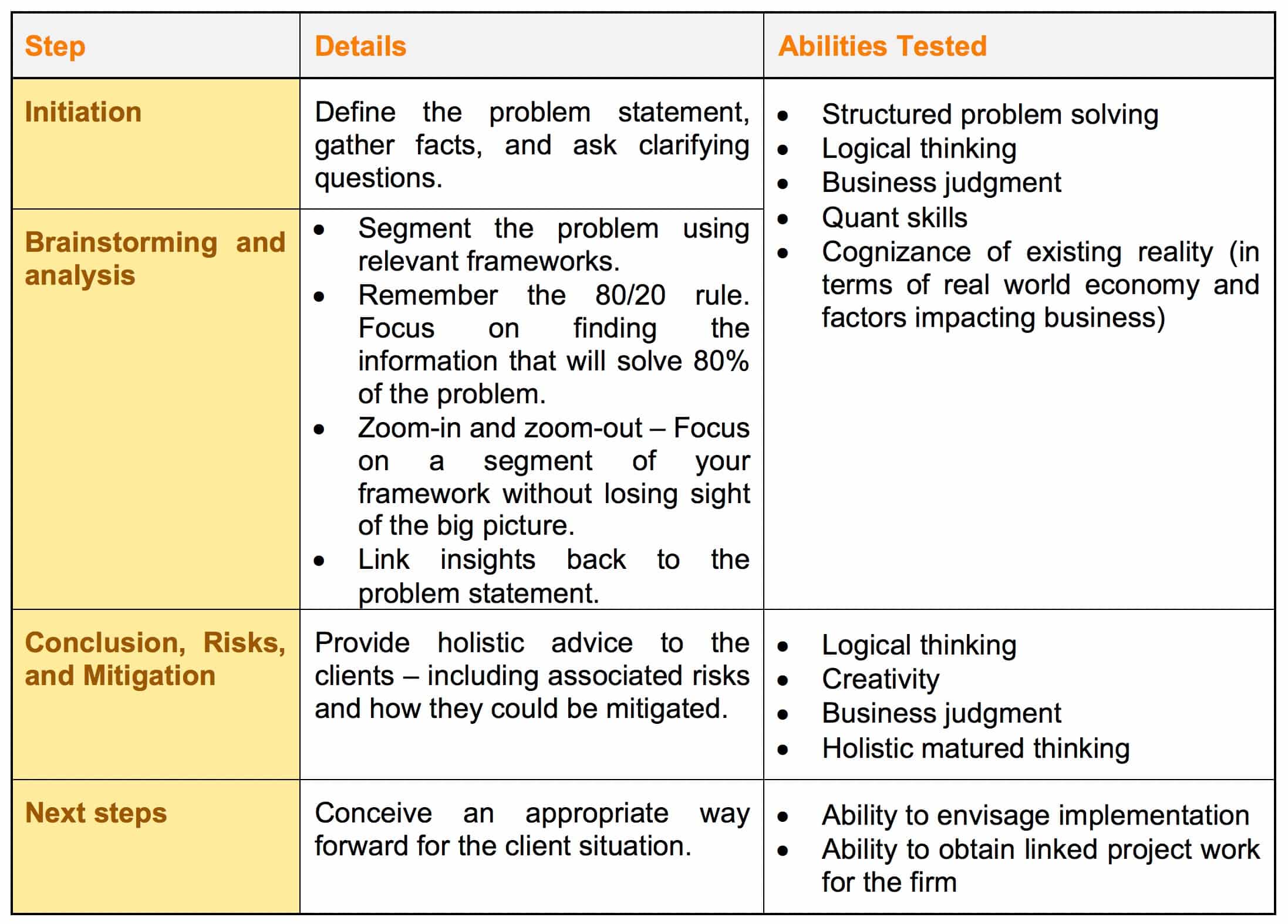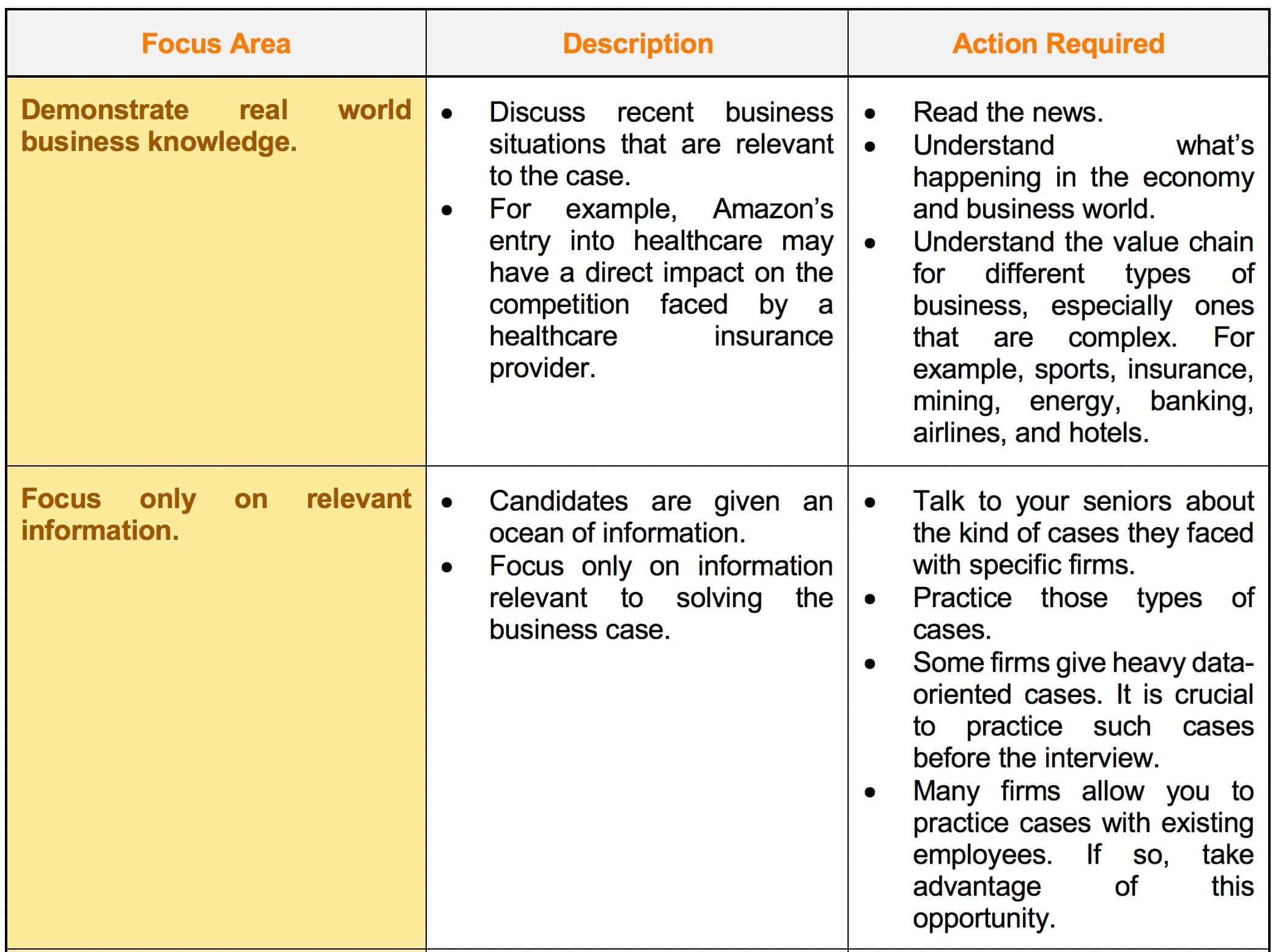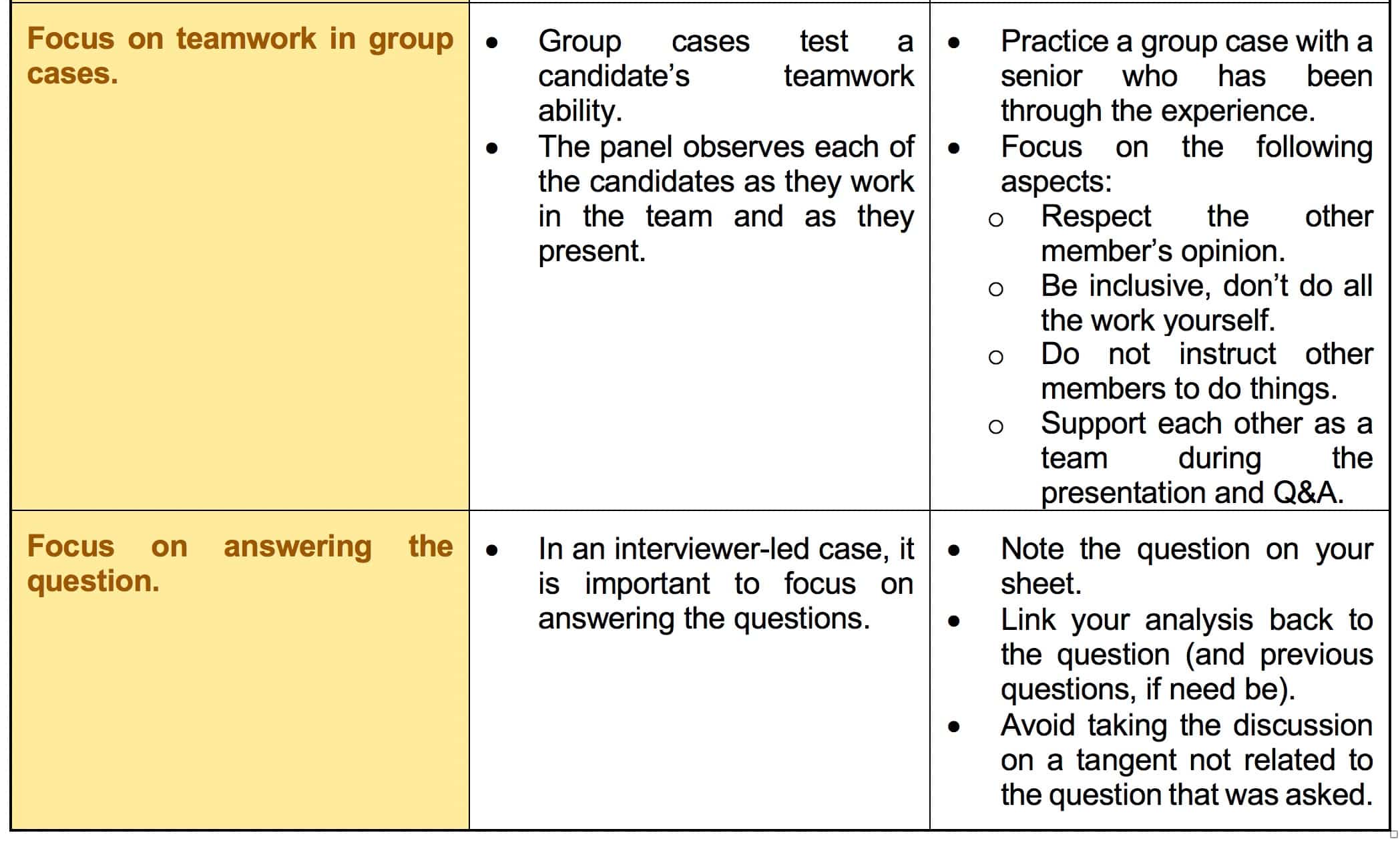The journey to management consulting has many pitfalls that a candidate needs to navigate. Along the way, every candidate will encounter the case interview. As monstrous as it may look, it is said that the case interview reflects the reality of day-to-day consulting. Preparing in the right way can provide candidates with the armoury needed to slay the dragon.
Let’s get under the skin of this monster to understand:
- what it is;
- how to prepare; and
- common mistakes that candidates often make.
1. Case interview – what is it and why does it exist?
Case interviews reflect the reality of day-to-day consulting and test candidates on whether they are client ready. This is a prudent step for firms to take.
Candidates are generally presented with a business situation with an expectation to understand the client problem and solve it in a structured manner. The business situation could be a single statement such as “We are a technology company and have been facing declining sales for the last year. What should we do?”. Or, it could include a detailed slide deck explaining the situation, relevant questions, and an ocean of information for the candidate to sift through.
There are various types of case interview. Typically, it will be one of the following.
2. How to prepare
Preparing for case interviews is a time-consuming task, so it is advisable to start early.
2.1 Case interview structure
Every business situation is different, but solving a case usually requires following 4 steps.
During the case interview, apart from the abilities listed in the table above, it is also important to showcase your communication skills, leadership ability, and professionalism.
2.2 Preparation strategy
If possible, find out what type of case you will face in the interview: that is, interviewer led, interviewee led, or group case. This will allow you to focus your preparation efforts and save time.
In general, it is useful to practice each case type and understand them in depth. Books such as ‘Case Interview Secrets’ by Victor Cheng or ‘Case-In-Point’ by Marc P Cosentino are useful references in understanding each of the components.
You should develop basic frameworks that you can use to tackle different types of business issues such as declining profitability and new market entry. The frameworks developed by Victor Cheng are very useful for segmenting the problem.
There are many frameworks out there, so find ones that you are comfortable applying to case situations. Also, remember that frameworks are a guide to help you structure your analysis. They should not be blindly deployed in case interviews, but instead adapted for the situation.
2.3 Practice
Practicing case interviews is the most crucial step in your preparation.
There are various websites and case books available to help you practice cases. I initially received help from students in the year above me. The feedback I received on my first 5 cases helped me a lot in assessing my weak points. After that, I used a website called www.rocketblocks.me to practice creating structures, which was one of my weak points. The website also offers lessons on case maths, interpretation of charts/ data, and market sizing. If your seniors do not have sufficient time, team up with your peers or friends, or ask for help in the consulting forum.
You should specifically focus on the following 4 areas to help you earn points in the case interview.
3. Common mistakes to avoid
The management consulting industry is a great career opportunity. However, for many applicants the interview process is a one-shot game. Due to the time and effort required to break into the industry, you need to get it right the first time as it may be your only shot.
Here are 6 common mistakes to avoid.
- Reading cases instead of practicing them – Going through the experience of a simulated real case interview is much more useful than reading through the case solution. Arrange times to meet with seniors, peers, or friends (or ask for help in the consulting forum). Go through each case as an interviewee not a reader.
- Practicing with one person – It is advisable to practice cases with a range of people rather than just one person. This will allow you to take cases from various personality types. For example, some interviewers will voluntarily give you the data you need to solve the problem, whereas others will only give it to you after you have pin pointed the exact data you require.
- Focusing on quantity over quality – Focus on the feedback you receive and try to improve in those areas, as you go from one case to the next. Your focus should be on improving the quality of your analysis rather than finishing a set quantity of cases. I practiced about 40 cases before appearing for the real case interview. However, there is no strict rule of thumb. Go with your comfort. I know people who cracked Bain after practicing just 10 cases.
- Not listening to the interviewer – During the interview, be coachable. It is important to catch the hints which the interviewer throws your way. In my experience, the interviewer will not try to distract you with irrelevant comments. They will instead try to guide you if you head in the wrong direction. At the same time, they are also testing to see whether you are open to be coached by your team members.
- Listening instead of taking notes – Often the discussions during the case interview are so engrossing that it may throw the candidate off the question that he or she is trying to answer. Therefore, it is important to take notes when the interviewer is giving you the case prompt, especially if you are doing a phone interview where there is no written prompt given to you. Your notes page can also be used to define the problem, create a structure, and brainstorm ideas, allowing you to collate all the information on a single sheet to refer to during the discussion. If you would like to download a sample document that shows how I use a plain A4 sheet to take notes during the case discussion, please click here.
- Seriousness during the case interview – Keep a warm smile on your face during the case interview, even if it is a phone case interview. A successful candidate will be someone who is viewed as a fun professional to work with rather than a serious person not ready for any casual conversation. The best way to show your personality is to start the interview with a small amount of chit-chat and then dive into the case. Needless to say, you should not dive into chit-chat if the interviewer wants to start the case immediately. However, such scenarios are rare.
Conclusion
If you have the enthusiasm and passion for consulting, you will enjoy the case interviews as they are a pure reflection of a consultant’s job. Initially, they may look intimidating. However, with the right preparation, you will appreciate the process and gain a valuable skillset not just for the interview but also for a successful consulting career.
Vishal Agarwal is currently undergoing his MBA from Kelley School of Business, Indiana University and is a management consulting enthusiast. Before Kelley, he was working with EY as a Manager and he carries 7 years of experience with EY’s International Taxation and Transfer Pricing Consulting practice.
Image: Pexels





One reply on “Navigating the Case Interview”
Awesome!!
Very well written, extremely insightful and a great guide for people like me who has just learned about case interviews a couple of months back.